Real Talk With Amy O’Shea, Founder of Bright Books

Who doesn’t love a company with a cause? Bright Books is a new (and in our opinion, up-and-coming!) stationery company with a buy-one, give-one model: you buy a pair of journals; they give a solar light to a Ugandan family in need. Solar lights provide safe, clean, and affordable (free) light that replaces dangerous kerosene lamps or expensive battery-operated lights in areas without electricity, enabling families to more easily complete daily activities, like reading or homework.
And the notebooks themselves are super cute, too.
Name: Amy O’Shea
Location: Washington, D.C.
Title: Founder
Company: Bright Books
What it is: Bright Books is a social enterprise that aims to alleviate energy poverty. For every pair of journals we sell, we donate one solar light to a child without adequate access to electricity.
Educational Background: Purdue University, B.A. Political Science, International Relations; Indiana University Master of Public Affairs and Master of Science in Environmental Science, Energy and Policy Analysis
What inspired you to start Bright Books Journals?
I started Bright Books out of a strong desire to fight energy poverty for the nearly 1.3 billion people who currently lack access to basic electricity. In 2009, I volunteered at a school in rural Uganda through the Arlington Academy of Hope. In my few months living in Bumwalukani, I quickly learned that some basic necessities, like electricity, are sparse. Without lighting, normal tasks like homework and reading after dark are difficult and actually dangerous. Rough terrain and poor roads make installing power lines nearly impossible in some areas. In the absence of an electric grid, people use kerosene or paraffin lamps to see at night — the problem is these lamps emit toxic fumes and are very expensive.
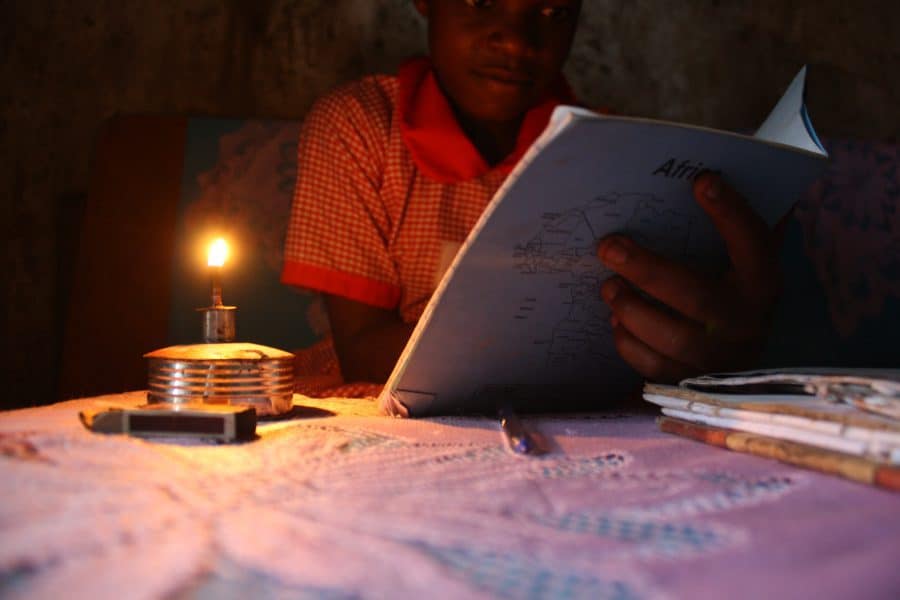
After encountering the severity of the problems associated with lack of electricity, I thought to myself, “Why can’t we just skip traditional power grids and develop renewable energy in smaller systems that can be installed in rural areas?” Lots of others have pondered this question too, and there is a growing movement to increase energy access. Off-grid, renewable energy means so much in rural areas (where many of the 1.3 billion without electricity live) given the lack of infrastructure and the urgent need for power and light. Solar panels make great off-grid systems because unlike coal or other traditional forms of electricity, you don’t need to build a huge plant to generate electricity. Plus, from a climate perspective, we need all the low-carbon energy solutions we can get right now.
So why don’t all children in the developing world have solar lights at home? One answer is money. The upfront cost of a solar light compared to a paraffin lamp is prohibitive. So, I brainstormed ideas on how to generate funds to support clean energy access. I have always loved journaling, and wanted to get involved in the give-back retail movement—so Bright Books was born. For every pair of journals we sell, we donate one solar light to a child without adequate access to electricity. Personal solar lights are just the beginning, though — I have big plans to help fund larger renewable energy projects for those in need and I am excited to see what we can do.
Why journals?
As I said before, I have always loved journaling. Also, I started doing research on the market potential for journals and other stationery goods, and it is huge!
What led you to a buy-one, give-one model?
In a consumer world, I think retail/sales are a great way to accomplish two of my goals related to energy access: 1) raise money, and 2) spread awareness. I see a need for responsibly produced, give-back products in the gifts/stationery world and I think Bright Books can fill that gap.
What does a typical day look like for you?
My New Year’s resolution for the last several years has been to establish a better routine. I am not a creature of habit — so every day is different, honestly. I have read lots of books about successful people and it seems routine and habit can help your productivity — so I am trying to incorporate more of that!
My average week usually consists of working at my day job, working on Bright Books, reading the news, scrolling through cute/ridiculous/funny pictures on Instagram, going to yoga, cooking, and hanging out with my boyfriend and my friends.
Is Bright Books a full-time job for you?
No, but I would love to get there someday.
Your goal was to raise $7000 on Generosity. You surpassed that goal! If you could have given yourself a piece of knowledge or advice when you started what would that be?
Push harder than you think you need to.
Would you do anything differently?
I would have hired a marketing firm to help get the word out. Our conversion rates of people getting to our page and deciding to contribute were quite high, so I learned that I just needed to attract more people to the site.
Also, I would have started my campaign at a time that doesn’t compete with several major holidays. People are busy and it is hard to fathom spending money on something you won’t get for a few months when you want to give gifts now.
Crowdfunding campaigns are uniquely challenging. What advice do you have for someone else looking to use Indiegogo or something similar?
I would say really research your platform. I ran into some kinks with the technology end of the campaign that set me back a bit. I intended to use Kickstarter, but they rejected our project two weeks before launch on the grounds that you cannot give money to charity. (Although we were pretty clear that we would use crowd-funding to cover startup costs; none of those funds would have actually gone to charities.) After spending lots of time researching their platform, this was a big setback. I read great things about Generosity and decided I should take advantage of their zero fees — so getting rejected from Kickstarter turned out to be a blessing. I ran into a few kinks on Generosity but for the most part, I am happy with it. I ended up hiring a virtual assistant, which was immensely helpful.
Another big piece of advice I was given that I’d like to pass on is to reach out to your friends. (Duh.) But really. I think I was shy about “bugging” people, but I realized most people need to see/hear something more than once before it really registers with them. Once I started talking about Bright Books more, I was amazed at how generous people were with their time and money to help me get the word out. Keep your networks informed on your progress. Don’t be afraid to email them a few times before, during, and after the campaign. (But not too many!)
What’s been the hardest part of starting Bright Books?
Managing my time. Since I am only doing Bright Books on nights and weekends while trying to have a normal-ish social life, the time commitment has been the biggest sacrifice. Another difficult thing has been setting expectations with people involved in Bright Books. More than once, I’ve encountered situations where people were not able to deliver as promised — and this put me in a tough spot. Sometimes things happen, and you have to get over it. But other times things happen and you can’t accept the outcome — so you have to fight for what you want/need/what was promised. As a California girl, sometimes I find this line fuzzy (probably for fear of sounding demanding or unreasonable), but I am quickly learning there is not much time for this in the business world.
But for every tough spot I have encountered, a new door has almost always opened. I am constantly amazed at how generous people can be with their time and advice. I am so grateful to my mentors who have consulted with me and helped me make all the big decisions along the way.
What has been the most rewarding part of starting your own business?
I love getting to create something new. Our journals have a few design elements that are unique and I love telling people about them. I also love hearing feedback from the kids in Uganda using the lights. It makes me feel good about what we are doing.
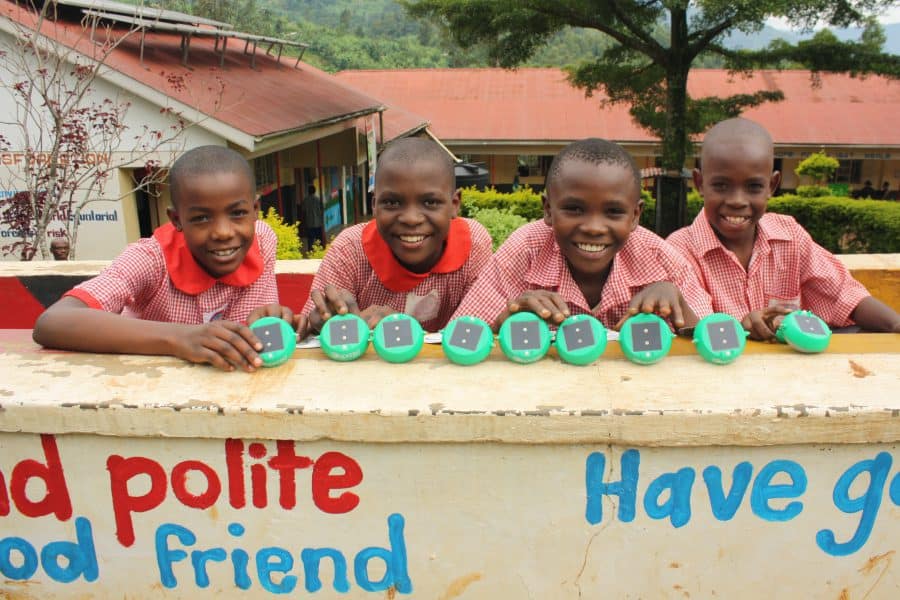
Also, the launch party was awesome. A ton of my family and friends came out on a cold and rainy night to celebrate the launch of the Bright Books campaign at this new distillery in my neighborhood. We went on distillery tours, premiered the campaign video, heard from some guest speakers, and showed everyone the journal prototypes. Everyone had a great time — lots of warm fuzzy feelings! I was very humbled to have so many people support my vision. It was a very special day for me.
How do you define success?
Our mission is to alleviate energy poverty and that is really hard to measure. On a broad level, Bright Books’ success will be determined by the feedback we get from the communities we serve. I want to make sure we are donating to those most in need, like those with overcrowded schools and camps for internally displaced persons. It is important that we not disrupt local economies and allow for market solutions to increase renewable energy organically when possible.
With donations tied to sales, I also have some sales targets in mind. For the short term, I want to increase our sales rate and bring in three new UPCs by the end of the year. I also want to get into as many stores as possible.
What are your hobbies? What do you do when you’re not working?
Can hobbies be a full-time job? If so, I am off to a great start.
1) Music. Concerts, street performers, and festivals — I am a big fan of them all. My family is also pretty into music. I play the guitar and piano, my dad plays the saxophone, and my sister-in-law plays the guitar. We have “jam sessions” when we are all home for the holidays and it always makes my month!
2) I like to stay active with sports like snowboarding, paddleboarding, hiking, yoga and soccer. I also enjoy running with my two Dalmatians.
3) I love traveling and am fortunate to have a big family that is always up for adventures.
4) DC has an awesome food scene. My friends and I like to do Sunday dinners to check out new places.
5) Art. I love museums and have recently started taking a drawing class.
And finally, 6) Netflix. Let’s be real.
How do you balance your work with your personal life?
Balance is definitely hard to find, particularly since we launched, but yoga and my faith are a huge help. I also love spending time with family and friends or anything to get me outside. If I am having a stressful day, I find a slow walk outside can totally change my perspective. Simple things like staring at trees and clouds can be so meditative. It helps clear my head and helps me focus on what needs to get done before I can go play.
What’s next for you + Bright Books?
I have a big vision for both the brand and the giving side of the business. Personal solar lights are just the beginning; I want to help fund larger renewable energy projects through international organizations.
I also want to have people in the communities we serve help with designing journals. I would love to do art workshops and feature kid’s artwork on the end sheets, or the flipbook icons. I see Bright Books doing a variety of journals to start, and eventually moving into other sustainably produced goods.
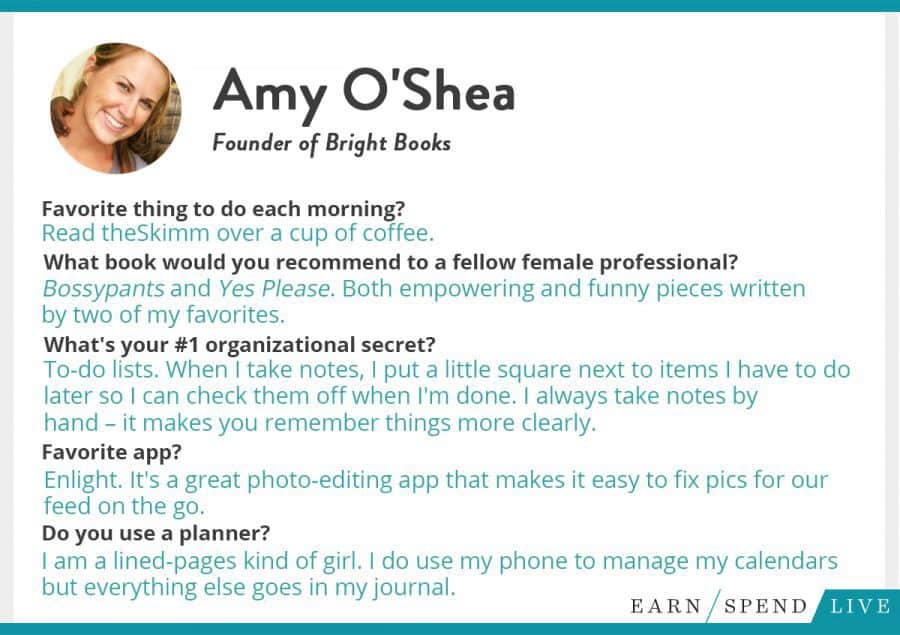
Last modified on February 15th, 2017


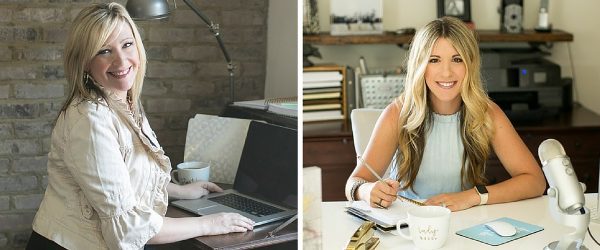
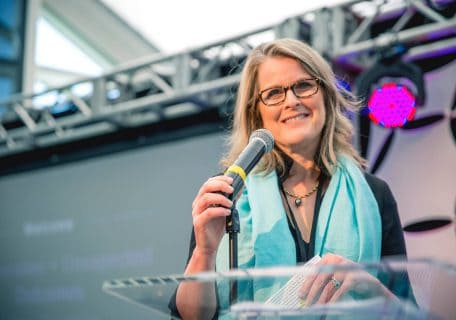
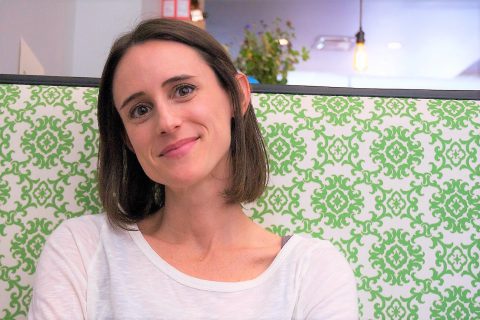
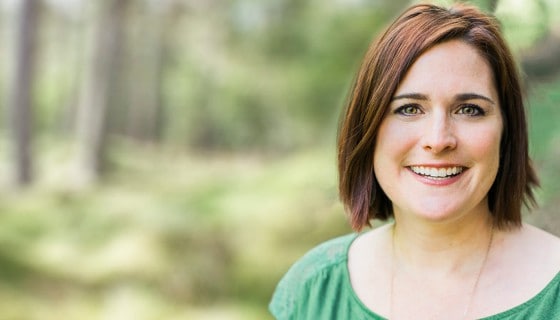
Show Comments +